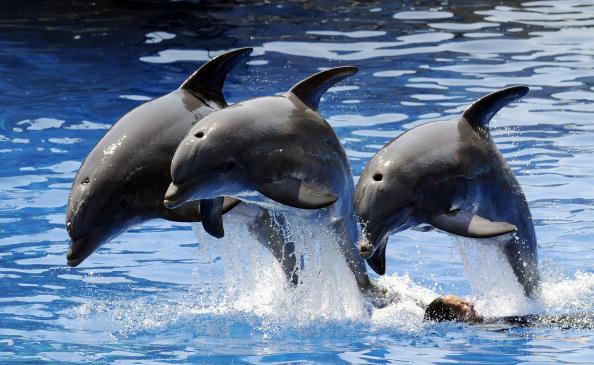India’s Ministry of Environment and Forests, has banned public entertainment shows by captive dolphins calling it morally unacceptable.
In a statement by the Central Zoo Authority, the Government of India has advised all state governments in the country to reject any proposal to establish a dolphinarium “by any person / persons, organizations, government agencies, private or public enterprises that involves the import [and] capture of cetacean species to [use] for commercial entertainment, private or public exhibition and [other] interaction purposes whatsoever.”
Avinash Basker, Legal Consultant at the Wildlife Protection Society of India said: “As far as Dolphins in captivity are concerned, it’s a great step. Dolphins hunting is illegal in India and those in captivity in the country would have been captured elsewhere in the world. Thus, it’s good for Dolphins globally.”
Basker, however, mentions that there are other challenges about Dolphin Conservation in the country. “There are sporadic reports on Dolphin meat consumption in southern Indian states. The Extent of this problem is ... not known as the fishing industry is not well regulated here.”
In India, Dolphins are protected under the Wild Life (Protection) Act of 1972. The Indian Government has declared Dolphins from the Ganges river as its national aquatic animal with a view to protect the endangered species.
The statement released by the Central Zoo Authority mentions that cetaceans (marine mammals) cannot survive in captivity. “Cetaceans in general are highly intelligent and sensitive, and various scientists who have researched dolphin behavior have suggested that the unusually high intelligence compared to other animals means that dolphins should be seen as ‘non-human persons’ and as such should have their own specific rights and it is morally unacceptable to keep them captive for entertainment purposes.”
Basker mentions that more countries need to come up with such policies to prevent more Dolphins from being captured. “Mentioning Dolphins as ‘non-human persons’ gives huge impetus to the Animal Rights discourse in the world. It’s a great statement,” he says.
Basker believes that the essence of this statement is that keeping Dolphins under captivity is cruel. “Under the aegis of the Wildlife Protection Act of India, Dolphins are protected as are any other species. By mentioning them as non-human persons, the government has probably tried to heighten their status under the Prevention of Cruelty to Animals Act of 1960.”





